detail profile elis regina

Elis Regina
Elis Regina Carvalho Costa
atau dikenal sebagai
Riwayat Hidup
Elis Regina was a Brazilian singer of popular and jazz music.
She became nationally renowned in 1965, after singing "Arrastão" in the first edition of TV Excelsior's festival song contest, and soon joined O Fino da Bossa, a television program on TV Record.
Elis was noted for her vocalization, as well as for her personal interpretation and performances in shows.
She recorded several successful compositions throughout her entire career.
Her death, at the age of 36, shocked Brazil.
She has frequently been regarded as the greatest Brazilian singer of all time by critics, musicians, and commentators.
Info Pribadi
Peran Yang Di Mainkan Elis Regina
 Elis Tom is considered one of...
Elis Tom is considered one of...Elis & Tom: It Had to be You 2023
Elis & Tom is considered one of the most important albums in the history of Brazilian music. Recorded in Los Angeles, in 1974, it was all captured by a team of filmmakers led by director Roberto de Oliveira, who arranged for the duo to meet. The original footage was kept for 45 years until restored and remastered in 2018. The film is also an exciting reunion of the director with the artists and the material he filmed nearly five decades ago.
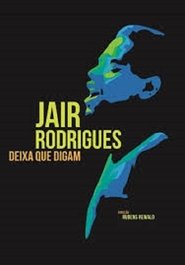 Jair Rodrigues the portrait of an...
Jair Rodrigues the portrait of an...Jair Rodrigues - Let Them Talk 2023
Jair Rodrigues, the portrait of an artist from a Brazil so close and yet so distant.
 Antonio Carlos Gomes Belchior Fontenelle Fernandes...
Antonio Carlos Gomes Belchior Fontenelle Fernandes...Belchior: Just a Wild Heart 2022
Antonio Carlos Gomes Belchior Fontenelle Fernandes, or simply Belchior, in a self-portrait that plunges into the wild heart of the poet, singer and composer from Ceará, Brazil who, with his work and his cutting ideas, marked and still marks the lives of so many people.
 The special documentary celebrates Elis Reginas 75...
The special documentary celebrates Elis Reginas 75...Transversal do Tempo 2020
The special documentary celebrates Elis Regina's 75th birthday and makes a parallel between Elis' extremely prevailing thoughts with those of João Marcello Bôscoli, Pedro Camargo Mariano and Maria Rita, her children, answering the same questions in the present time. All three talk about their childhood, their relationship with Elis and her artistic career.
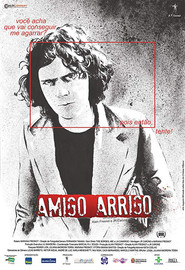 The art of Arrigo Barnab one...
The art of Arrigo Barnab one...Amigo Arrigo 2019
The art of Arrigo Barnabé, one of the pillars of the São Paulo experimental music scene during the 80's and author of critically acclaimed albums such as "Clara Crocodilo" (1980) and "Tubarões Voadores" (1984).
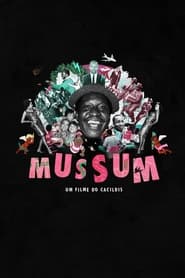 The trajectory of musician and comedian...
The trajectory of musician and comedian...Mussum: Um Filme do Cacildis 2019
The trajectory of musician and comedian Mussum as vocalist of the group "Os Originais do Samba" and later in cinema and TV as a member of "Os Trapalhões", a group that revolutionized the way of making humor on Brazilian television.
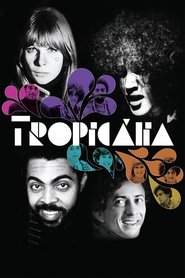 Set against the turbulent atmosphere of...
Set against the turbulent atmosphere of...Tropicália 2012
Set against the turbulent atmosphere of the 1960s, Tropicália is a feature length documentary exploring the Brazilian artistic movement known as Tropicália, and the struggle its artists endured to protect their right to freely express revolutionary thought against the traditional Brazilian music of that time.
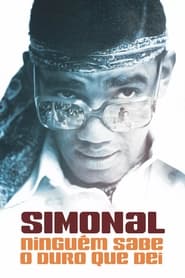 In a time of timeless and...
In a time of timeless and...Simonal: No One Knows How Tough It Was 2009
In a time of timeless and revolutionary talents, Wilson Simonal shined as nobody before and innovated as only a few could. All of a sudden, everything vanished. This film maps the spectacular trajectory of the ex-Army corporal that ruled as a monarch, and was condemned to ostracism for an offense to which he pleaded not guilty.
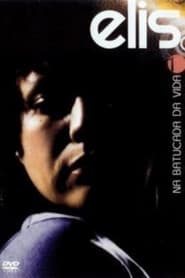 Her difficult career beginning in her...
Her difficult career beginning in her...Elis Regina: Na Batucada da Vida 2007
Her difficult career beginning in her hometown, Porto Alegre, was not different from her friends' stories. Elis belonged to a group of people born to win. She had the talent, she knew her potential and she just needed to face the world with courage and determination. That is exactly what she did. The result is known by everybody and it is in this film, a unique register of memorable interpretations by Elis, including the song which Elis learned with Tom Jobim and entitles the film.
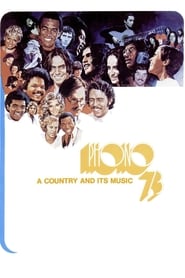 The biggest Brazilian historical festival of...
The biggest Brazilian historical festival of...Phono 73: A Country and its Music 2005
The biggest Brazilian historical festival of all time. The great cast of the 1973 Phonogram (now Universal Music) meets in three nights to protest against the curtailment of freedom of expression in those dark years of the dictatorship. With the images rescued in 2005, revealing exciting moments, containing the incredible presentations, it brings a team of all greatness and the opportunity to understand the path that Brazilian music has taken to the present day.
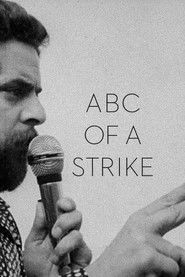 ABC of a Strike captures the 1979...
ABC of a Strike captures the 1979...ABC of a Strike 1990
ABC of a Strike captures the 1979 metal workers strikes outside of São Paulo. The footage sat untouched until after the death of highly-regarded director Leon Hirszman in 1987, by which time the material had a new relevance. The gripping film captures the negotiations between the labor unions and the factory bosses and shows the birth of the region’s Worker’s Party, as well as the emergence of its charismatic leader, Luiz Inácio Lula da Silva. Rising from extreme poverty, Lula gained national prominence as a union activist during the late 70s and early 80s. After being jailed during his time as a union leader, he eventually becomes Brazil’s president from 2003 to 2010.
 After the great success of the...
After the great success of the...Elis Regina Carvalho Costa 1980
After the great success of the Rio season of her show Saudades do Brasil, Elis Regina made this special with Globo. In a circus-inspired stage, she sings Alô, Alô, Marciano by Rita Lee and Roberto de Carvalho; O Bêbado e a Equilibrista by João Bosco and Aldir Blanc; and O Que Foi Feito (de Vera) by Milton Nascimento and Fernando Brant, amongst others.
 Mulher 80 emerged as a result of...
Mulher 80 emerged as a result of...Mulher 80 1979
Mulher 80 emerged as a result of the success of 'Malu Mulher' (1979), a miniseries starring Regina Duarte, which addressed the female situation in Brazilian society at that time. The main focus of the special was the female presence in music, honouring the singers and songwriters of MPB with musical numbers and testimonials.
 Chronicles the life of a 17 yearold...
Chronicles the life of a 17 yearold...The Girl from Ipanema 1967
Chronicles the life of a 17 year-old girl living in the upper-class Rio de Janeiro neighbourhood of Ipanema. Márcia lives a life of parties and spend her days among bohemians, musicians and intellectuals. While seeming happy in the outside, she's extremely anguished inside. Based on the famous song by Antonio Carlos Jobim and Vinicius de Moraes.




